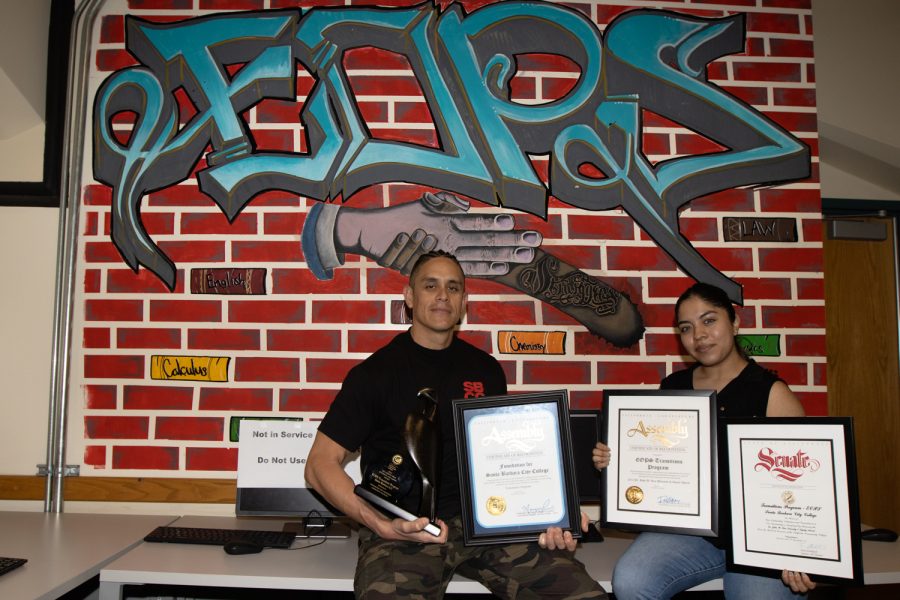Through the troubles of COVID-19 regulations, City College’s Transitions Program was able to continue instructing classes offered inside the county jail.
The Transitions Program assists individuals in continuing their educational journeys during and after their time of being incarcerated. On campus, formerly incarcerated individuals receive support from the program, while incarcerated individuals are able to earn credits while serving their time. Throughout the COVID-19 pandemic, classes taught from inside the county jail have been moved to a correspondence format.
“We were able to drop off [homework] packets to them, they would do the homework, we would pick it up and give feedback,” said Transitions Program Coordinator and Student Advisor Noel Gomez. “I started noticing how we were able to offer classes to anyone interested in the class.”
Prior to COVID, classes inside the county jail were a bit complicated due to the jail’s strict regulations. Men and women weren’t able to combine or be in the same class, along with individuals with different types of charges. With the correspondence format of the classes, faculty members found grace in making each class more accessible, rather than teaching different classes within the different housing units.
However, the program faced some issues when COVID first hit. Unlike students on campus, inmates don’t have access to the internet or computers. After exploring different teaching methods, faculty received approval of correspondence education which allowed incarcerated students to not get their education interrupted.
Gomez encourages incarcerated individuals to apply for the classes by walking around the jail and informing them about the program.
“I have women and men come up to me and request the applications right away because they really wanna change their lives and make that time useful,” he said.
Incarcerated students qualify for the California College Promise Grant, which waives the tuition of the offered classes. Mandatory fees on-campus students pay such as the bus transportation and student health are also waived for students taking classes in the county jail.
“We provide the textbooks, we provide the supplies like notebooks, pencils and paper,” the student advisor said.
In 2012, the program received the Dr. John Rice Diversity and Equity award through the California Community Colleges Chancellor’s Office.
A lieutenant at the sheriff’s department in the county jail first reached out to the coordinators in 2015.
“He asked us about how we could possibly incorporate college courses inside the county jail, and we were able to do that,” Gomez said. “I started teaching in the county jail in January of 2015.”
While it began with stress and management classes, the course list has expanded to career planning, and college success, all of which incarcerated individuals can obtain credit for. Along with these classes, they now offer a variety of non-credit classes to be taken inside the county jail.
“We started with about 20 incarcerated men at the time, and we just submitted a report that’s shown we’ve worked with about 265 women and men,” he said. “Our program in the jail is almost bigger than our campus program.”
Miguel Cruz, a formerly incarcerated student from the Transitions Program, is now a discharge planner at Santa Barbara County Jail and at the North Branch Jail.
“I was in the program in 2014 and it changed my life forever,” Cruz wrote in an email. “I fell in love with learning and I fell in love with the idea that my life can finally be good if I stayed in recovery and got an education.”
The now discharge planner encourages individuals to invest in themselves, try something new, and apply for Transitions.
“It’s funny how one act of kindness and one institution believing in you can change your life forever,” Cruz wrote.














